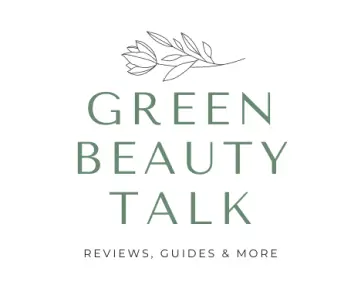Pregnancy is one of the most transformative experiences in a woman’s life. The body’s adjustment to the new life it carries is often accompanied by skin dermatitis due to hormonal fluctuations. An example of such a skin disorder is perioral dermatitis.
Perioral dermatitis is a form of eczema that manifests itself as tiny itchy rashes around the mouth. In this article, we talk about how to deal with this condition when pregnant and home remedies to help you treat it.
What causes perioral dermatitis during pregnancy?
As earlier mentioned perioral dermatitis is an inflammatory skin condition that manifests as tiny rashes on the skin around the mouth. These rashes can be itchy, inflamed, cause redness and tightness in the area around the mouth. They can also feel scaly or appear as tiny pustules with a burning sensation.
The main cause of perioral dermatitis still remains unknown, however, like other forms of dermatitis; it is considered to occur as an autoimmune response to irritants.
During pregnancy, this condition can be triggered by hormonal imbalances that occur in a woman’s body.
It can also be caused by the following:
- Fluoride-based toothpastes
- Nasal sprays containing corticosteroids
- Steroid based creams
- A weak or impaired skin barrier
- Thick facial creams rich in occlusives like petroleum jelly or lanolin
- Stress
How to get rid of perioral dermatitis naturally during pregnancy
Perioral dermatitis is a pretty tricky condition to deal with. While a lot of skin experts will prescribe antibiotics to help you deal with your condition, there is no guarantee that these will work or overtime your flare-ups may return.
So, here are a few ways by which you can deal with your flareups naturally without needing to pop pills :
- Simplify your skincare routine. Get rid of all cleansers containing sulfates, and fragrances, and stay away from strong actives like retinoids, exfoliants, and brighteners. It is best to stick to products that soothe and hydrate the skin to support its barrier
- Switch to natural toothpaste that is made without fluoride to prevent the risk of flare-ups
- Make sure to wash your face gently with very mild soap to prevent further irritation
- Improve your diet by including vegetables and food rich in antioxidants and with anti-inflammatory properties like kale, broccoli, etc. Reduce your sugar intake and cut back on processed foods. Chances are you are already familiar with these tips if you are pregnant.
Natural treatments for perioral dermatitis during pregnancy
Antibiotics are usually the recommended treatment for perioral dermatitis. However, during pregnancy taking antibiotics becomes a tricky affair as not all antibiotics are recommended for pregnant women due to the risk of causing birth defects.
This is why we focus here only on natural treatments that are safe for both you and your child. Most of these treatments have little to no research backing them up, but due to their known healing properties have been tried and seen positive results.
Apple cider vinegar
Depending on who you ask it may or may not be a solution of choice. Dermatologists do not smile at the mention of using apple cider vinegar for perioral dermatitis.
However, based on anecdotal reports of numerous users apple cider vinegar is touted as a miracle cure for mild perioral dermatitis and is safe to be applied on the skin during pregnancy.
According to the American National Eczema organisation, although there is no scientific proof that apple cider can indeed treat eczema (perioral dermatitis being a form of eczema) it may be used as a treatment.
This can be explained by the fact that perioral dermatitis results from the disruption of the skin’s natural microbiome which causes the pH of the skin to become more alkaline.
ACV is a mild acid and as such may help restore the skin pH and help reduce POD breakouts.
When the good bacteria present on the skin gets destroyed, it weakens the skin’s barrier and can trigger perioral dermatitis. Using raw apple cider vinegar (apple cider vinegar with the mother) on the irritated area can help restore this good bacteria as it contains yeasts that can restore the imbalance.
Aloe vera
Because perioral dermatitis causes skin dryness and inflammation, aloe vera is a great option to help soothe the skin.
Aloe vera is known to have anti-inflammatory properties that calm burning. It also contains minerals such as magnesium lactate which help reduce itchiness and skin redness. It is also very moisturising which can help alleviate the dryness and flakiness induced by this skin condition.
Coconut oil
Coconut oil has moisturising and healing properties that suggest it can be a good option to treat perioral dermatitis. Added to this it is safe to use during pregnancy, however, for some people this rich natural oil may be pore-clogging. This is especially the case for people with oily and acne-prone skin. As such it should be used in little doses.
Honey
A pilot study done on patients with atopic dermatitis suggested that manuka honey could be used to treat this condition. This has led many to think this may be the case with perioral dermatitis as well.
While the study was small and cannot be judged as conclusive it does create room for more research.
Honey is known to have natural anti-inflammatory and healing properties and is commonly used in skincare products formulated for dry skin. It is also safe to use during pregnancy so you can always give it a try.
What to avoid when treating perioral dermatitis during pregnancy
There are a number of things to avoid when dealing with perioral dermatitis. These range from your regular skin care products to the type of toothpaste you use.
To help you out here is an exhaustive list of things you should watch out for:
Hydrocortisone creams
Usually, when the skin gets irritated or when you experience rashes or bumps your doctor will most likely prescribe a hydrocortisone cream to soothe the inflammation and calm the irritation.
Hydrocortisone is one of the principal ingredients used in anti-itch lotions and creams, however, this compound does not help perioral dermatitis. On the contrary, using a hydrocortisone cream can worsen your flare-up
Calendula ointments/supplements
Calendula, also known as marigold, is a herb known for its anti-inflammatory effects on the skin and other healing properties when taken orally.
While it is a common natural remedy recommended for the treatment of dermatitis and other skin inflammations; it is not recommended for use during pregnancy.
Although limited research exists on this herb it could possibly lead to miscarriage when taken orally. It should be noted that calendula is usually administered to provoke menstruation. As such, experts recommend avoiding using calendula topically as well as orally for safety purposes.
FAQs
Is perioral dermatitis common during pregnancy?
Yes, this skin disorder is pretty common during pregnancy, especially in women who already suffered from this condition before pregnancy
Will perioral dermatitis go away after pregnancy?
Perioral dermatitis can resorb on its own after pregnancy but there is really no way to tell given how unpredictable the condition is. Depending on what triggers your flare-ups it may or may not last after pregnancy.
Is perioral dermatitis harmful during pregnancy?
Thankfully, this skin condition does not pose a threat to the health of the mother and the baby. However, know that perioral dermatitis can be infected by bacteria or fungi if not properly taken care of.
Related articles:
The Ordinary Products for Perioral Dermatitis
How to get rid of perioral dermatitis using Aloe vera
How to use Azelaic Acid for Perioral Dermatitis

Petra Nakashian (previously Kravos) is a dedicated natural health and beauty blogger, driven by the loss of her parents to cancer, which led her to meticulously research beauty product ingredients. With over 10 years of experience, her in-depth knowledge has made her a trusted expert in the field. Founder of Be Healthy Now and Green Beauty Talk, Petra recently expanded her expertise with Beauty Insights Hub, exploring a wider range of beauty treatments. Committed to transparency and honesty, her work is a vital resource for navigating the complex world of beauty.

